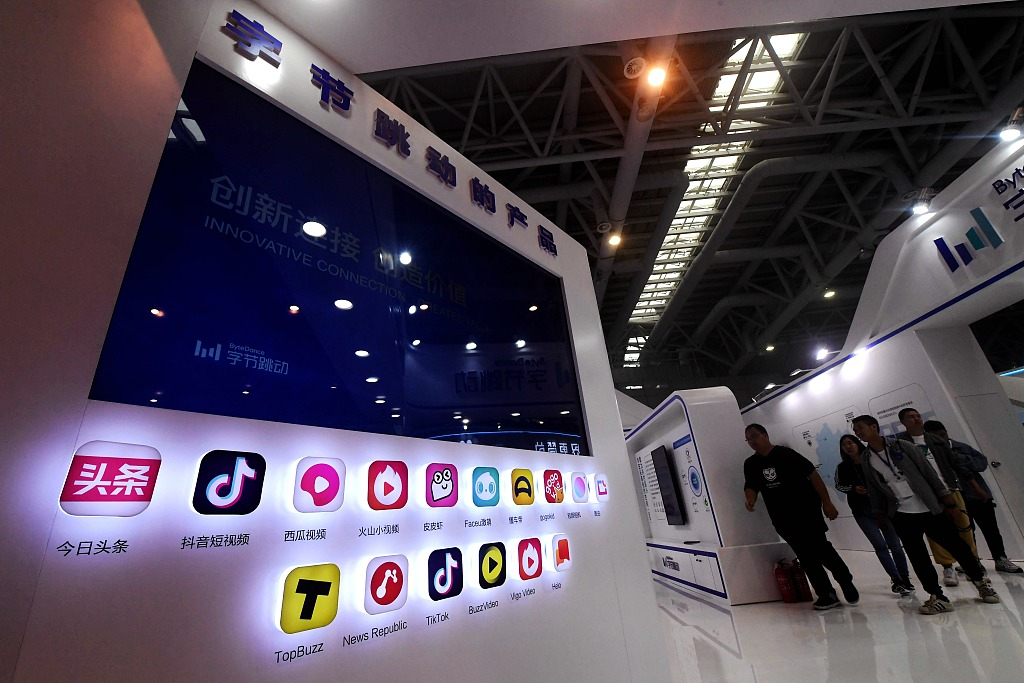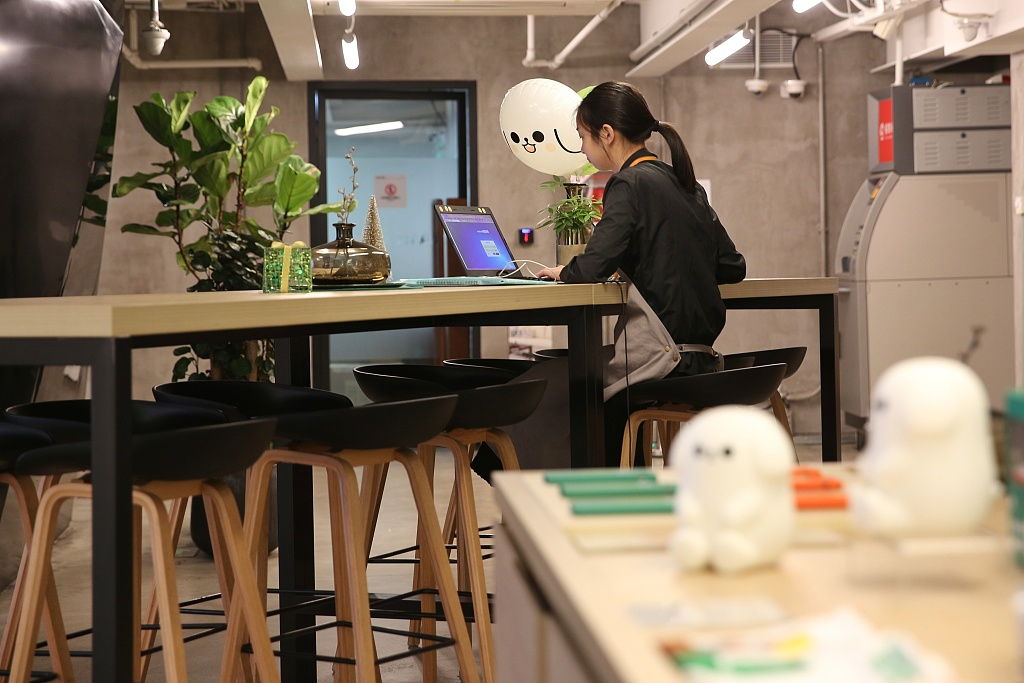While "lockdown" is not a technical term used by most public health officials openly, it means everything - in almost every country hit by COVID-19 - from travel restrictions to mass gathering bans, or distance learning and working policies.
The global scale and speed of the current educational disruption is unparalleled.
- Audrey Azoulay, Director-General, UNESCO
As the COVID-19 pandemic continues to spread globally, an unprecedented number of children, youths and adults are now out of schools, universities or workplaces. The latest UNESCO official figures show 776.7 million children and young people are impacted in 85 countries by the coronavirus pneumonia epidemic; a further 15 countries have implemented school closures and, should these closures become nationwide at last, hundreds of millions of additional students will experience education disruption.
On the other hand, with more companies being shut down, human capital is facing a very serious recession, especially in the service sectors worldwide. The UN's trade and development agency (UNCTAD) predicted that the economic uncertainty will likely cost the global economy one trillion U.S. dollars in 2020.
How are China's hi-tech companies responding to COVID-19's distance working and learning challenges? They are evolving their instant messaging (IM) products to become cool multi-functional, multi-language platforms with all the tabs students and employees need, reaching a wider user base internationally.

UNESCO recently releases a list of qualified digital educational applications and platforms to help parents, teachers, schools and school systems worldwide. /CGTN
UNESCO recently releases a list of qualified digital educational applications and platforms to help parents, teachers, schools and school systems worldwide. /CGTN
During the COVID-19 lockdown, Chinese primary school students flooded the iOS store to review-bomb DingTalk with one star ratings. This Alibaba-owned intelligent mobile office platform is the world's largest collaborative multi-functional tool used by most of Chinese office workers. So when kids heard, that though they are in quarantine, they still needed to remotely attend classes via DingTalk, they knew it would be impossible to play digital hooky. Right after Chinese kids "vented their anger" on DingTalk, stuck-at-home pupils in Tokyo cried for the end of their "extra holiday" as teachers started to use the App to give distance lectures. Kids will be kids, whatever.
Besides for these lighthearted moments, Chinese companies have realized how tough the situation could be, given that China is the first epicenter of the coronavirus. In response to the large-scale shutdown, DingTalk opened over 300 simultaneous online video conferences for free, ensuring that 10 million corporate organizations and 200 million office workers on its platform can retain regular online collaboration. Bytedance-owned Lark, a Slack-like communication platform, is trying to tap into the work-from-home practice around coronavirus-hit countries. WeChat is also rising to the second place among free iOS apps at Apple store during the COIVD-19 situation. In December 2019, WeChat Work (a work version of regular WeChat) announced it had logged more than 2.5 million enterprises and some 60 million active users.
"I used to use only WeChat on my phone for personal communication with family and friends, but during my time working from home, I installed all three Apps, DingTalk, Lark and WeChat work," said Alena Wong, a real estate consultant based in Beijing. "I have clients from all over the world, so in order to provide instant services to people using different IM tools, I need to get perfectly equipped," explained Wong, adding that when people can't gather at a physical conference room to have the job done, IM platforms save their business in a significant way.

Japanese stuck-at-home pupils in Tokyo started to use DingTalk for distance learning. /DingTalk
Japanese stuck-at-home pupils in Tokyo started to use DingTalk for distance learning. /DingTalk
UNESCO recently released a list of qualified digital educational applications and platforms to help parents, teachers, schools and school systems worldwide. According to CGTN's count, there are 60 tools recommended by UNESCO including digital learning management systems, system purpose-built for mobile phones, massive open online course platforms, collaboration platforms that support live-video communication and etc.
Among which most are U.S. companies like Zoom, Skype and Canvas, two Chinese internet companies, DingTalk and Lark, rank high there. While these solutions do not carry UNESCO's explicit endorsement, we can tell that Chinese collaboration platforms are becoming top IM players. During the epidemic, DingTalk invested heavily to cope with the dual traffic peaks of online office and classes, and has continuously expanded more than 100,000 cloud servers in Alibaba Cloud.
China's communication software industry has been slow to take off compared to the western counterparts. More business/corporate-oriented services and tools got stuck in the competition since consumer-focused apps are much more profitable in Chinese context. Now in the coronavirus outbreak, collaborative IM work apps are witnessing a boom as millions are confined so are working and studying from home in, not only China, but the whole world.

Bytedance brand matrix. /CGTN
Bytedance brand matrix. /CGTN
TikTok, a social-sharing platform that allows young people to create and share short-form videos, is now a major media platform for combating boredom during quarantine. Gradually, it serves as a way for transmitting information, updates and news about the coronavirus during this special period of time. Thus how the platform filters improper content and misinformation, and reaches to young community in a right way, are crucial. Strategically, TikTok chose to be a content partner with World Health Organization (WHO). By providing livestream services and video sharing links, TikTok also used technical solutions to make sure WHO information appears among the top coronavirus-related search results. "We'd like to offers tips on staying safe and preventing the spread of the virus, and dispels myths around COVID-19," said TikTok's corporate commutation head.
Lark is another rock star among Bytedance teams. Different from TikTok, Lark was launched in 2019 in overseas markets as an enterprise messaging and productivity app. Through utilizing local resources developed by TikTok teams in North America, Europe and Southeast Asia, it appears to be making a big user acquisition push recently by placing ads on its sibling Douyin - TikTok's China version. Lark's empowered by its parent company's global strategies.
"It's rare for a made-in-China app to go to market first in overseas countries," said Nathan Zhao, a hi-tech entrepreneur based in Shanghai. "But if you understand the visions of Bytedance, you would only feel weird it didn't go global earlier. After all, the company has pictured the whole structure of its internationalization since 2016."
The competition between the DingTalk and Lark has spread from China to the global market. Since they both got a boost from COVID-19 "staying inside" restrictions, their "second half" will be more intense. "How to adjust the organization structure and enhance efficiency in a very short term is the ultimate question for us. The localization of our products that fits young people in various markets by digesting fast changes, like this time, is vital," said an engineer at DingTalk.

WeChat headquarter in Zhuhai, Guangdong. /CGTN
WeChat headquarter in Zhuhai, Guangdong. /CGTN
Lark replaced Alibaba's DingTalk in Bytedance as its own internal communication and collaboration platform, according to a senior engineer in Bytedance. He also said Bytedance has doubled Lark's team size by the end of 2019, while a similar product called "Feishu" was tailor-made for the domestic market. Lark declined to comment on its further plans for the app amid the COVID-19 pandemic, but it's not hard to smell the company's ambition as the UN has officially recommended it to the whole world.
As the pandemic is causing serious troubles around the world, the question is whether the sudden boom of these Chinese IM apps during this unique period of time can turn into a sustainable growth trend. Working and learning from home are a temporary practice for most people. Though the campaigns are entertaining and competition within these apps is harsh, business will definitely resume in physical offices, students will sit in schools again, and teachers will stand in the classrooms before a blackboard, and all in-person communication will be back someday, as soon as the battle ends.